PROJECTS
EU Projects with Senegal
The joint EU - Senegal 2018-2023 strategy is part of this framework and supports and strengthens a multidimensional partnership. Its ambition is to support the emergence of Senegal, to strengthen the stability of the country and to support its economic and social recovery efforts following the COVID19 crisis. The joint strategy also takes into account the events that have occurred in the country since March 2021 which have demonstrated strong economic and social frustrations of the population and especially young people, linked to the negative impacts of the COVID19 crisis but also to deeper structural challenges such as inequality, job and income insecurity, as well as limited prospects for young people. The joint EU-Senegal strategy is based on 3 priority axes: green and inclusive growth for job creation, the development of human capital and good governance.
في هذه الصفحة
- NEKKAL : Mon état Civil, Ma citoyenneté !
- Sustainable Urban Mobility : BUS RAPIDE TRANSIT (BRT)
- Team Europe Initiative for Manufacturing and Access to Vaccines, Medicines and Health Technologies in Africa (TEI MAV+)
- The West Africa Competitiveness Support Program (WACOMP/PACAO)
- Hann Bay Depollution Project
- Developing employment in Senegal: strengthening the competitiveness of businesses and employability in the departure areas
- Support program for strengthening the civil status information system and creating a national biometric identity file
- The RIPOSTES project and its contribution to the pan-African Great Green Wall initiative in Senegal
NEKKAL : Mon état Civil, Ma citoyenneté !
Support program for strengthening the civil status information system and consolidating a national biometric identity file in Senegal
In Senegal, the low rate of registration in civil status registers such as birth, marriage and death registration prevents many people from accessing essential rights such as education, health care and social protection, and can thus increase the risks of document fraud.
Senegal has made significant progress in modernizing its civil status system in recent years, which has positively impacted the registration rates of civil acts. The national average for registration in the civil status register increased from 79.7% in 2013 to 85% in 2023, according to the last 2 general population censuses.
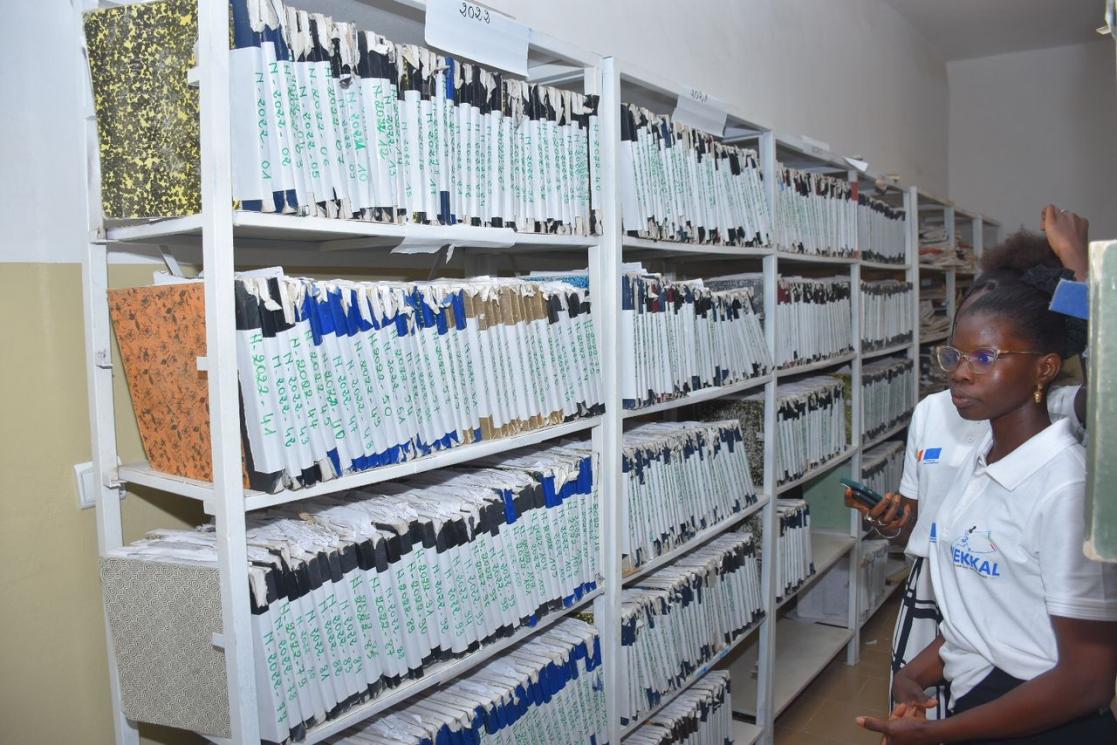
DUE Sénégal, 2024
In this context, the EU has been supporting the modernization of civil status in Senegal since 2020, through the "Support Program for the Strengthening of the Civil Status Information System and the Consolidation of a National Biometric Identity File in Senegal" PARSIEC, commonly known as "NEKKAL".
This project aims to improve the supply and demand for civil status services. It supports the digitalization of registers through the establishment of a digital platform, i.e. a national biometric identity file linked to the computerized civil status information system.
As part of the NEKKAL project, the EU is thus encouraging a change in behavior at all levels by 2026, through an awareness campaign on the importance of civil status facts "mon état civil, ma citoyenneté" !
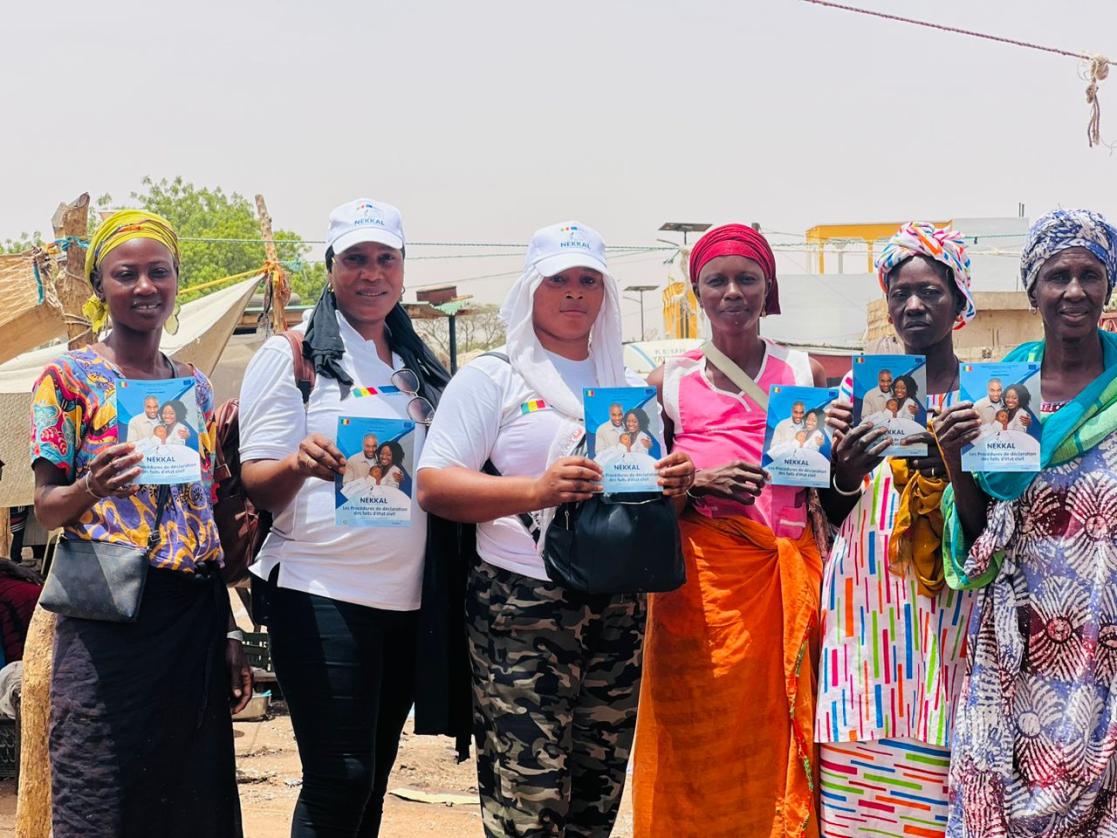
DUE Sénégal, 2024
In partnership with CIVIPOL and ENABEL, the NEKKAL project has thus offered training programs for civil status staff in order to improve accessibility to the civil status service for all citizens.
Sustainable Urban Mobility: BUS RAPIDE TRANSIT (BRT)
In the city of Dakar, citizens waste 1 to 3 hours per day in traffic jams, depending on the neighborhood and peak hours. Traffic jams in the capital cause economic losses for drivers in terms of fuel costs and vehicle maintenance costs. Traffic jams thus degrade the quality of life of Dakar residents, reducing their mobility and increasing the level of noise and air pollution.
As part of the EU Global Gateway strategy, the EU promotes a healthy environment and the improvement of the living conditions of Dakar residents through green investments in urban mobility. In this context, the EU supports the Government of Senegal in restructuring the public transport network, and in particular in supporting the operationalization of the Bus Rapid Transit (BRT).
As part of the restructuring of Dakar's public transport, the EU supports the acquisition of 120 electric buses for the BRT project as well as the acquisition of 380 gas buses for the feeder lines to the BRT and the Regional Express Train (TER) as part of the project supported by Team Europe (the EU, the European Investment Bank, France and Germany).

SUNUBRT, 2024
The full launch of the BRT will connect the Petersen bus station located in Dakar Plateau (in the city center) to the prefecture of Guédiawaye in the northern suburbs (23 stations, 18.3 km) with a long-term objective of at least 300,000 passengers/day.
This is one of the pillars of an ambitious strategy for sustainable urban mobility supported by the Dakar Urban Transport Executive Council (CETUD), project owner of the BRT project, which aims to create a complete mobility system that is efficient, inclusive, reliable and low-carbon.
The BRT will contribute to improving air quality in Dakar and reducing greenhouse gas emissions, as well as creating more than 1,300 direct and local jobs.
Through EU support to PROPARCO, which supports Dakar Mobilité, a private Senegalese company that will operate the BRT over the next 15 years, the transport service will meet the specific needs of women as users, by ensuring that the risks of gender-based violence are taken into account while promoting women's access to employment in a sector where they are underrepresented. Finally, through training and capacity-building actions, the project supports the professionalization of traditional actors in the urban mobility sector.
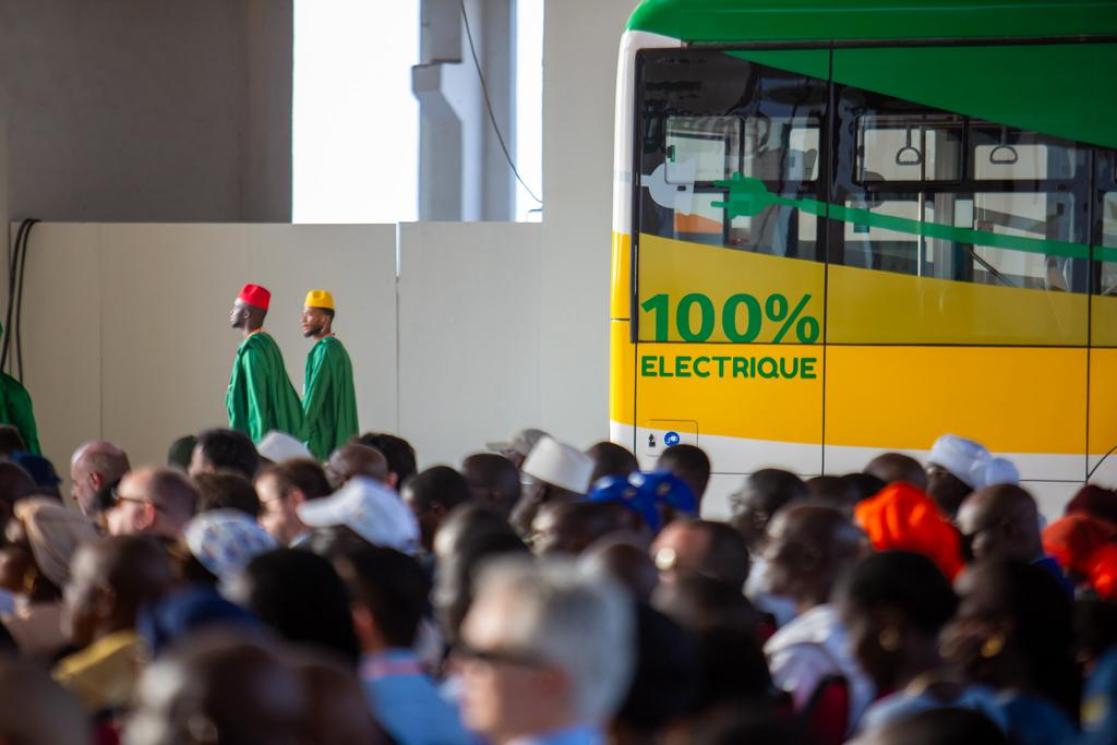
SUNUBRT, 2024
For more information, visit the CETUD website: https://www.cetud.sn/index.php/projets/brt-dakar
Team Europe Initiative for Manufacturing and Access to Vaccines, Medicines and Health Technologies in Africa (TEI MAV+)
As the COVID-19 pandemic highlighted the fragility of health systems and the African continent's heavy reliance on imported medicines and vaccines, the African Union launched the "African Vaccine Manufacturing Partnership" in 2021, aimed at developing regional vaccine production hubs.
In this context, Team Europe supports, through a systemic approach, Senegal's ambitions for health sovereignty, translated into a recovery plan for the pharmaceutical sector, the objective of which is to ensure the needs for health products with 50% local production by 2035. The European Union (EU), the European Investment Bank (EIB), Germany, Belgium, France and Luxembourg have thus invested an amount of approximately 143 billion FCFA (218.6 million euros) to support this dynamic.
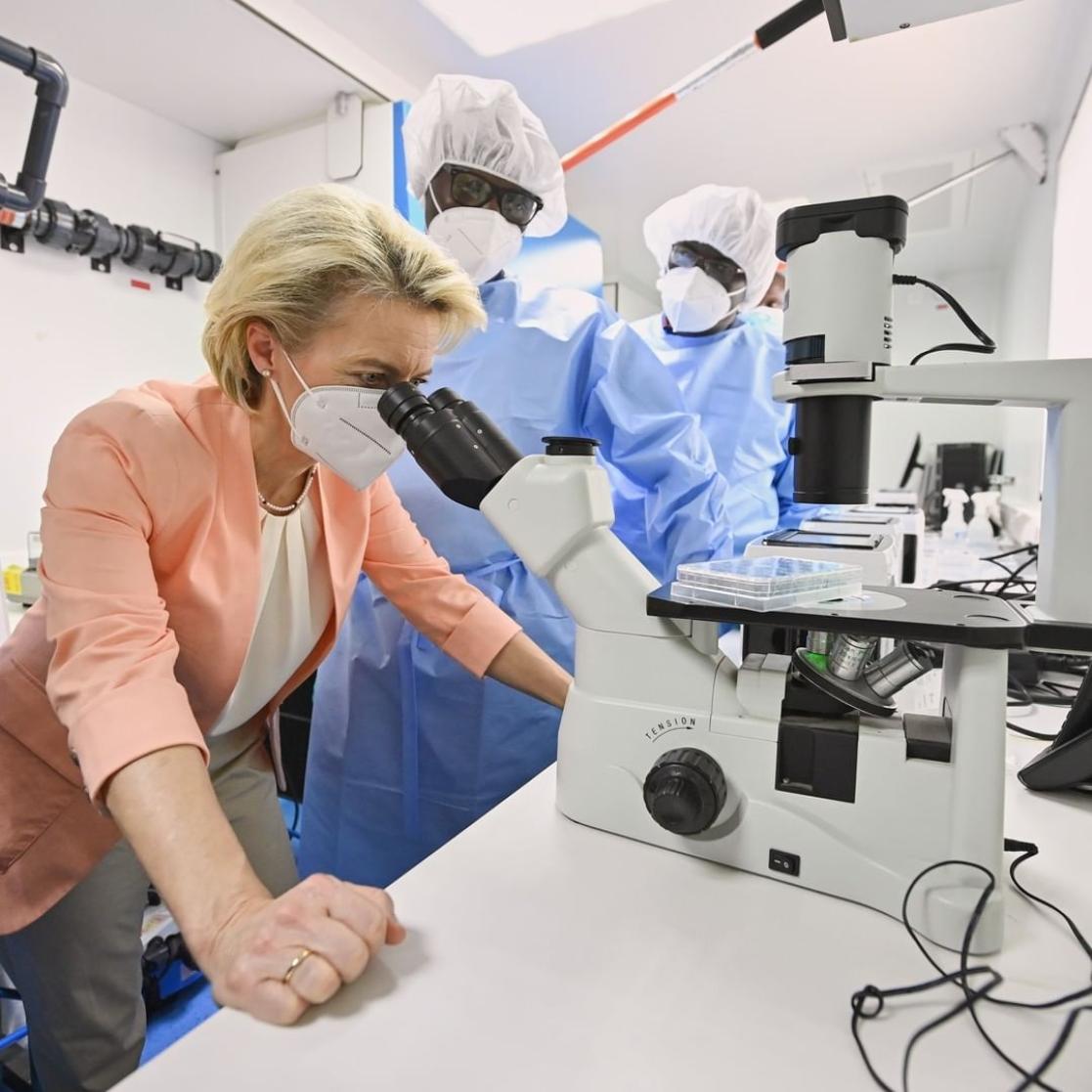
DUE Sénégal, 2022
This support is part of the Team Europe Initiative for Manufacturing and Access to Vaccines, Medicines and Health Technologies (TEI MAV+) which proposes a comprehensive, 360-degree approach to create an enabling environment for sustainable local manufacturing in Africa. The overall objective of the TEI MAV+ is to facilitate access to quality, safe, effective and affordable health products.
This initiative thus aims to stimulate growth and decent jobs, facilitate trade, diversify global value chains, and engage the private sector, while advancing universal health coverage and human development and public health goals.
Team Europe (EU, EIB, Germany, France) is supporting the MADIBA project (“Manufacturing in Africa for Disease Immunisation and Building Autonomy”) of the Pasteur Institute of Dakar for the construction of a vaccine hub in Diamniadio, including a vaccine production site, the ambition of which will be to produce up to 300 million doses of vaccines per year, to combat childhood or priority diseases (measles, rubella, etc.) as well as neglected tropical diseases.

Institut Pasteur de Dakar, 2024
Team Europe also supports the implementation of reforms and actions identified by the Government of Senegal in consultation with private players in the sector as part of the national plan to revive the pharmaceutical industry, which will strengthen the country's pharmaceutical sovereignty.
The West Africa Competitiveness Support Program (WACOMP/PACAO)
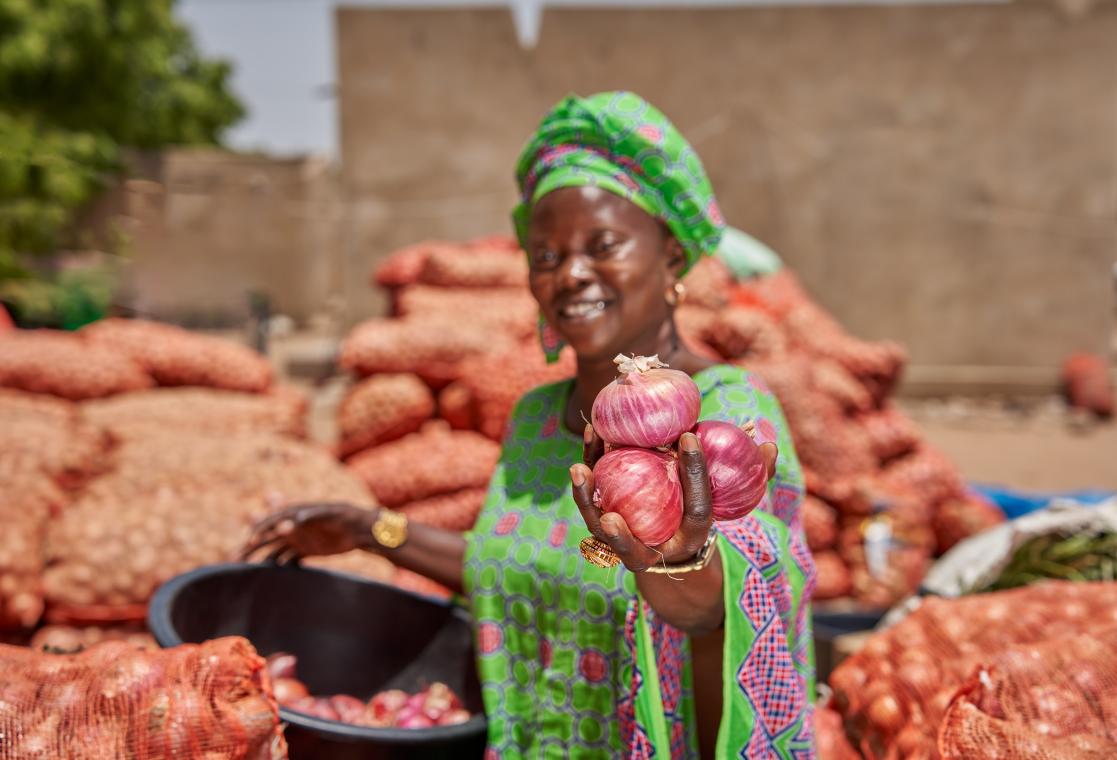
Centre du Commerce International
The mango and onion sectors play a crucial role in Senegal’s agri-food economy, contributing to income generation and food security. However, their competitiveness in domestic and international markets is compromised by low productivity, quality issues, poor infrastructure and limited access to credit.
The development of information and communication technologies (ICTs) in the Senegalese agri-food sector offers real potential to improve the competitiveness of the mango and onion sectors, and thus contribute to the country’s economic growth and food security.

Centre du Commerce International
The West Africa Competitiveness Support Program (PACAO/WACOMP) aims to support and strengthen the competitiveness of the mango and onion sectors, and information and communication technologies (ICT), thus contributing to job creation mainly for young people and women. It aims to promote and facilitate the grouping of operators within commercial cooperatives in order to contribute to the economic development of rural areas in Senegal.
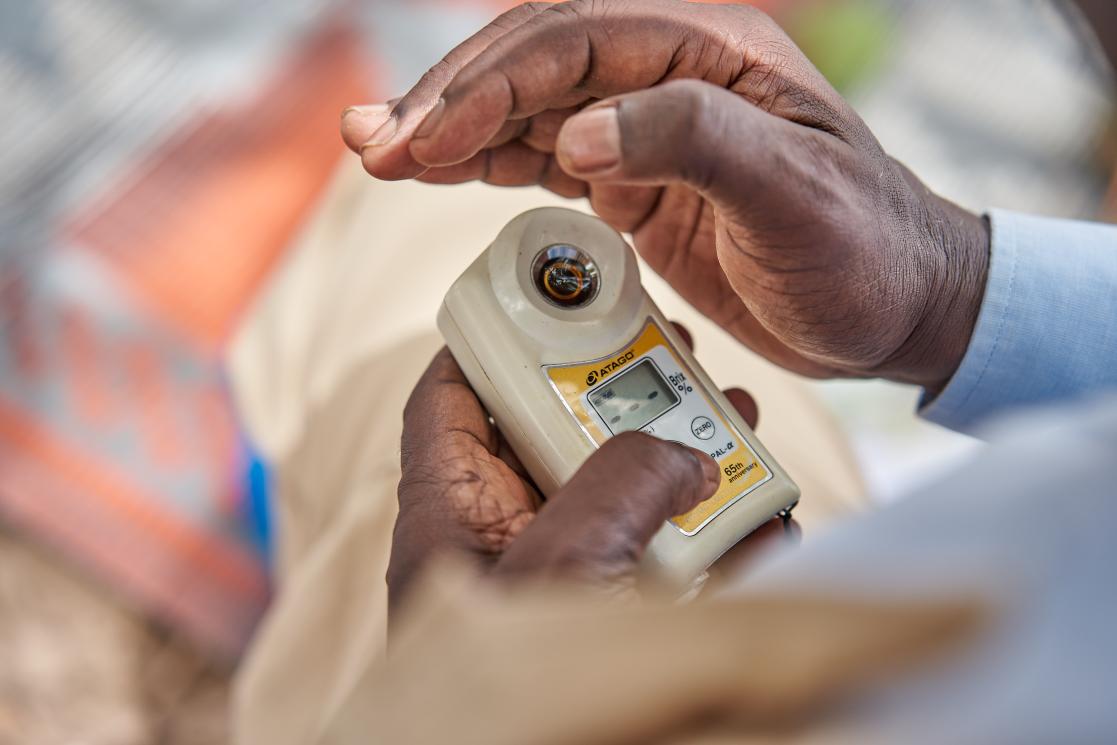
Centre du Commerce International
PACAO thus facilitates access to information on companies, professions, training and opportunities in the ICT sector. In Senegal, PACAO is implemented by the International Trade Centre (ITC) in partnership with the Ministry of Industry and Trade and the Ministry of Agriculture, Food Sovereignty and Livestock.
“The European Union and Team Europe provide comprehensive support to Senegal through several programs, including PACAO. The objective is to stimulate the development of agricultural sectors, the competitiveness of the Senegalese economy, digital transformation and food security. Concrete actions aim to support agri-food production and processing, structure producer organizations, facilitate access to credit and promote the emergence of successful agro-industrial companies. These efforts contribute to increasing farmers' incomes and strengthening their economic and social resilience,” Jean-Marc PISANI, Ambassador of the European Union to Senegal.
Hann Bay Depollution Project
The Hann Bay Decontamination Project is an emblematic project led by Team Europe (France, the Netherlands and the European Union) and constitutes a flagship action of the environmental and social agenda of the European Union (EU) in a country like Senegal where the health, ecological and economic consequences of air, water and soil pollution are raising growing concerns.
With the direct discharge of industrial effluents (nearly 80% of Senegalese industry is located along the Bay of Hann and directly discharges its polluted effluents there) and domestic effluents, the Bay of Hann in Dakar, considered in the 1970s as one of the most beautiful bays in the world, is experiencing a very worrying situation of degradation which, in addition to the direct environmental consequences, including on marine biodiversity, has major health consequences (infectious diseases among local populations), social consequences (loss of use of an environment favorable to leisure and tourism), and economic consequences (loss of income linked to the abandonment of leisure and tourism areas and the reduction of fishery resources).
In partnership with the National Sanitation Office of Senegal (ONAS), the EU is supporting the Hann Bay decontamination project, the first large-scale industrial decontamination operation in West Africa!
The project aims to sustainably improve the ecological status of the bay and the living conditions of the populations by financing collection and treatment infrastructures before the effluents are discharged into the sea.
The EU is also contributing to the environmental upgrading of the most polluting industrialists in the bay through technical and financial support for the installation of pre-treatment units for their wastewater. Indeed, the project is also a lever to advance the ongoing sectoral reform on industrial sanitation, in particular by introducing the "polluter pays" principle through a new industrial sanitation fee, which will be paid by all connected industrialists and the creation of a dissuasive pollution tax for industrialists in the event of non-connection.
Developing employment in Senegal: strengthening the competitiveness of businesses and employability in the departure areas
This program aims to promote the employment and professional integration of young people in areas of departure of migrants. It offers upgrading of businesses in high-potential sectors (with the Business Upgrade Office and the Agency for the Development and Supervision of SMEs), and the strengthening of the professionalization of the workforce. work that can be used in these same sectors and regions.
Main objective:
Promote employment, in particular for young people, by improving the offer (training and professional integration) and developing demand (upgrading businesses) in the regions of departure.
Specific objectives:
- Strengthen the fabric of local businesses.
- Expand equitable access to vocational training.
- Promote access to funding for beneficiaries of the Program (currently being formulated).
- Provide information on economic opportunities in Senegal.
Total estimated cost: 40 M €
Program Partners:
- GRET NGO
- Luxembourg cooperation (LuxDev)
- French Development Agency (AFD)
- Positive Planet International
Geographic area: Senegal
(Kedougou, Diourbel, Kolda, Sedhiou, Tambacounda, Ziguinchor, Saint-Louis, Louga, Matam)
Support program for strengthening the civil status information system and creating a national biometric identity file
The EU Trust Fund finances relevant projects to address the causes of migration, and to encourage Senegal's efforts in cooperation on migration issues. In this context, support will be provided for the strengthening of a universal civil status information system and the creation of a national biometric identity file so that each Senegalese is able to avail himself of the rights. inherent in its secure identity.
The program will contribute to the modernization of civil status by setting up support for strategic management, by improving the offer (accessibility of centers, training of actors, archiving, etc.) and demand ( awareness campaigns, civic education, etc.). In addition, the program should support the creation of a national biometric identity file linked to the computerized civil status information system capable of securing the identity of the population and of being usable by other administrations.
Main objective:
- Contribute to respect for the rights of individuals related to the recognition of their identity by setting up an efficient civil status information system and creating a secure biometric national identity file.
Specific objectives:
- Improve the Senegalese civil status information system.
- Create a national biometric civil status file.
Cost: 28 M €
Program Partners:
- Civipol
- ENABEL - Belgian Development Agency
Geographic area: Senegal
The RIPOSTES project and its contribution to the pan-African Great Green Wall initiative in Senegal
In Senegal, the Great Green Wall project extends 545 km long and 15 km wide, covering a total area of 817,500 hectares. It is implemented by the Senegalese Agency for Reforestation and the Great Green Wall (ASERGMV) and is part of a broader program to restore degraded lands and combat desertification.
The RIPOSTES project - Resilience and Intensive Reforestation for the Safeguarding of Territories and Ecosystems in Senegal - is a pilot project which is part of the implementation of the Great Green Wall in Senegal.
It aims to strengthen local land restoration and sustainable development initiatives in two specific areas covering 13 municipalities:
- Ferlo: Sylvo-pastoral zone located in the north-central part of the country
- Peanut basin: Agricultural zone heavily degraded by monoculture
The RIPOSTES project is implemented by FAO and the Senegalese Agency for Reforestation and the Great Green Wall. The contributions of RIPOSTES to the Great Green Wall in Senegal are as follows:
- Support for local communities: The RIPOSTES project supports local communities in the implementation of reforestation, agroforestry and development of sustainable economic activities projects.
- Capacity building: The project strengthens the capacities of local actors in sustainable land management, environmental governance and women's leadership.

DUE Senegal 2023
The Koyli Alpha Community Nature Reserve in the commune of Mboula, in Ferlo, is an example of sustainable community management of land and soil. Thanks to reforestation, fencing and reintroduction of wildlife, as part of the RIPOSTES project, local communities have contributed significantly to the regeneration of degraded lands and the strengthening of animal biodiversity.
|
Image
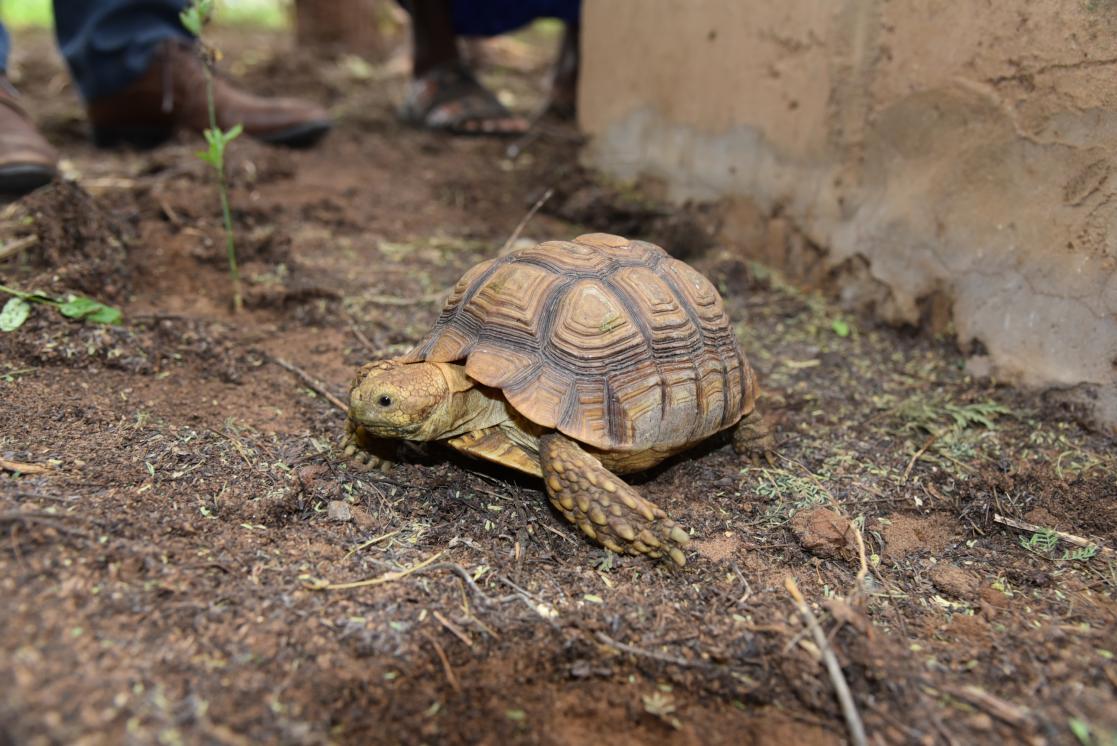
Copyright
DUE Senegal 2023 |
Image
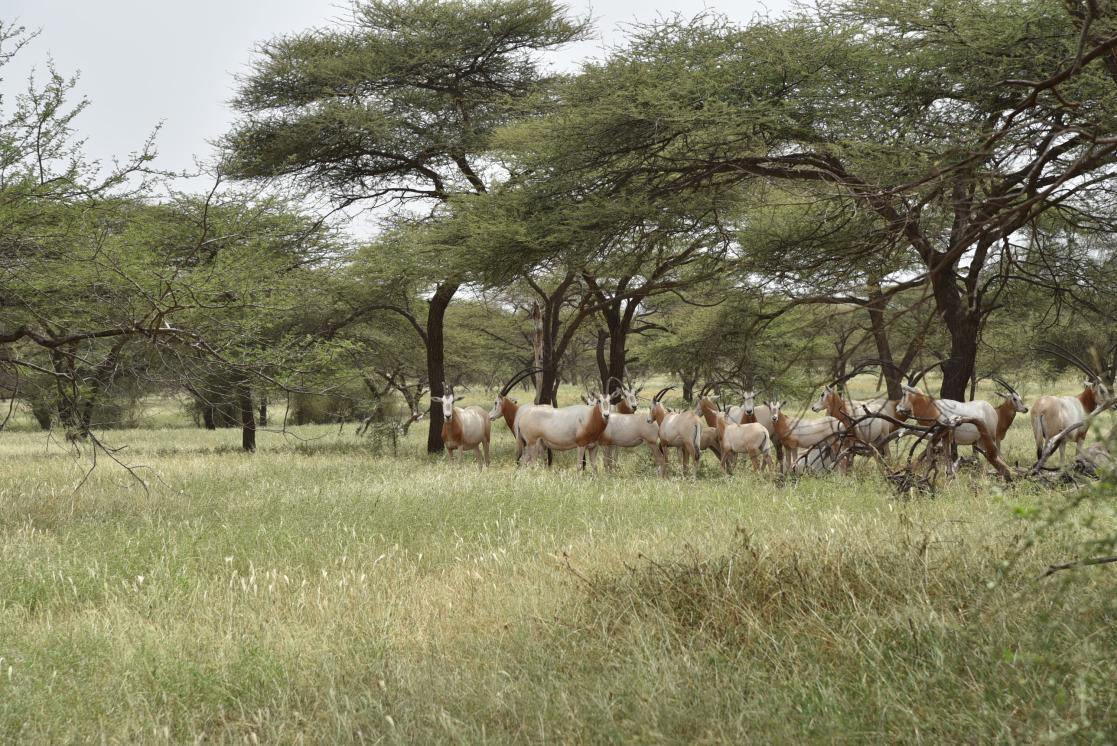
Copyright
DUE Senegal 2023 |
- Promotion of innovation: The project encourages the experimentation of new land restoration techniques and the valorization of non-wood forest products.
- Capitalization of knowledge: The project capitalizes good practices and lessons learned in order to share them with other actors involved in the implementation of the Great Green Wall.
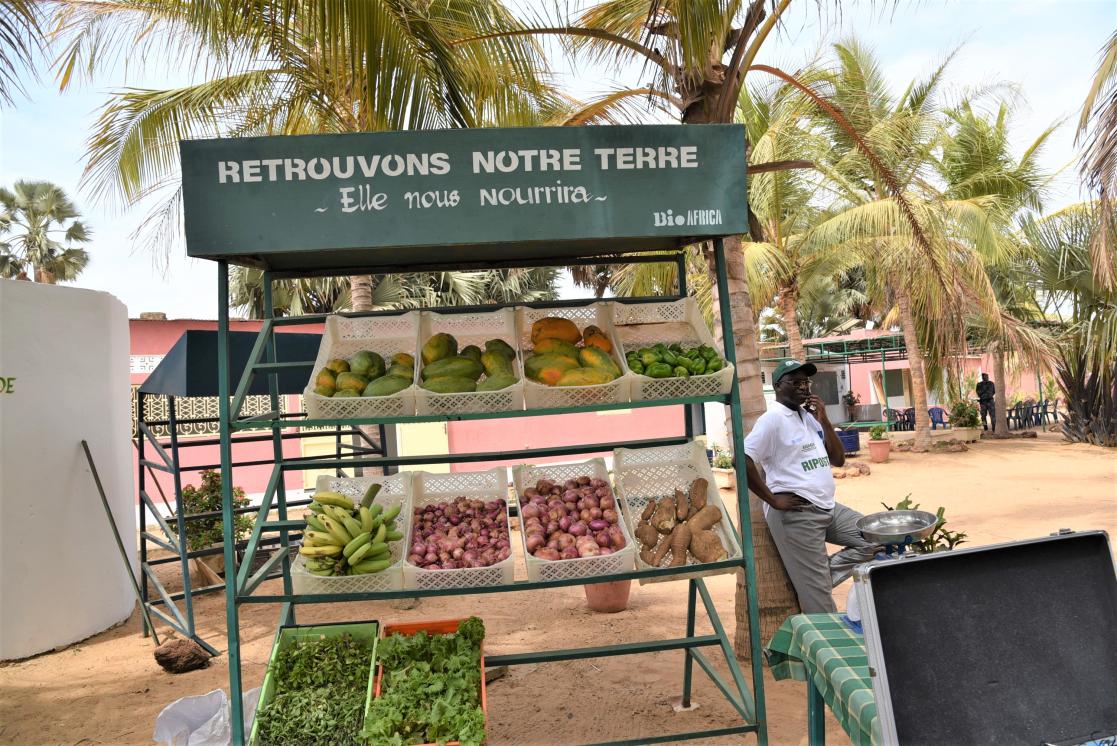
DUE Senegal 2023
The Kaydara agroecological farm school offers training in agroecology and soil conservation to more than 50 young people. Listen to the words of Almamy Samory Touré Ndiaye, one of the young trainers at the Ferme Ecole de Kaydara, a true ambassador for agroecology =>https://www.facebook.com/share/v/PytTFw8cvQFzpSYQ/?mibextid=oFDknk
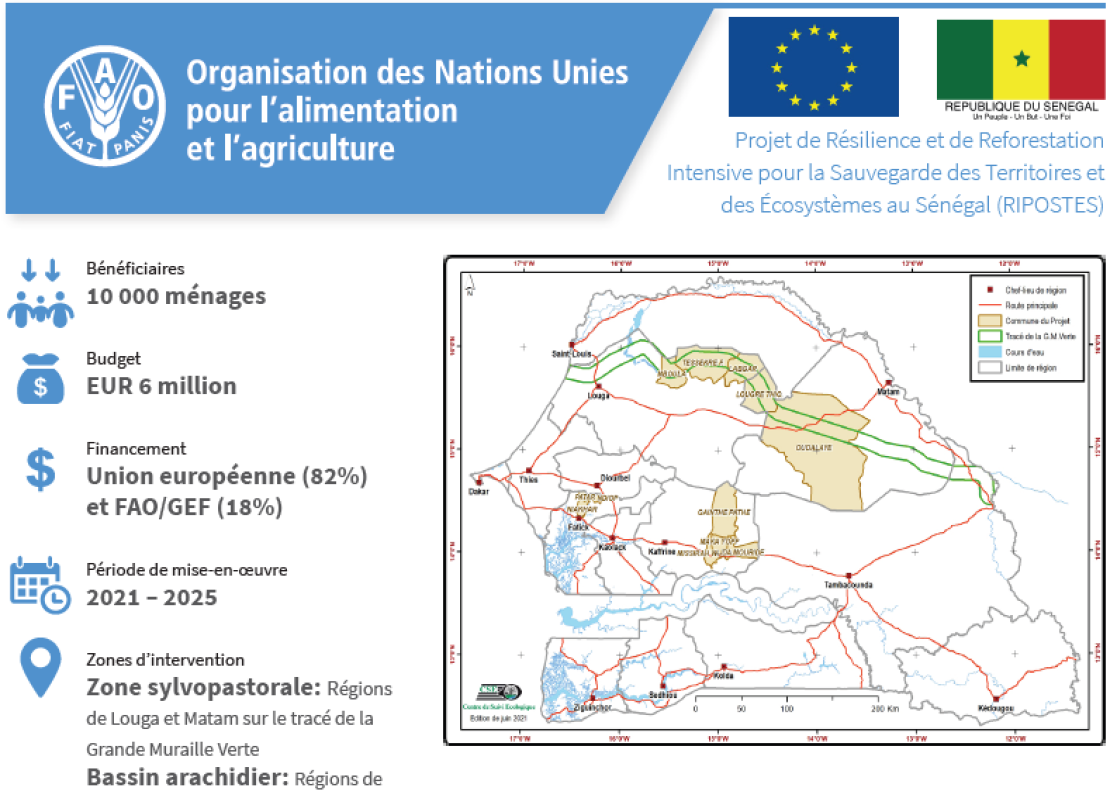
DUE Senegal 2023
For more details on the RIPOSTES project, consult the project file=>
You want to better understand the Great Green Wall project in Senegal, consult the website of the Senegalese Agency for Reforestation and the Great Green Wall: https://asergmv.org/








